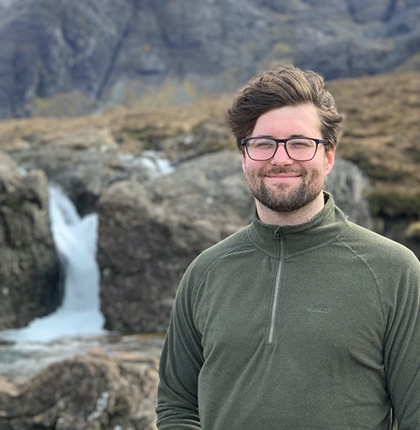Understanding and exploiting stoichiogenomics to harness reactive nitrogen in sustainable food production systems
Aquaculture is the fastest growing food production sector in the world, however global production needs to double in order to keep pace with the demand for high-quality protein. Nitrogen, the main constituent in protein, is one of the most crucial and valuable elements globally. Currently, aquaculture practices are characterised by inefficient nitrogen use and global production greatly contributes to net nitrogen loading in the environment leading to negative environmental and social impacts. As aquaculture intensifies, the volume of nitrogen-rich waste will increase in direct proportion, however there currently are limited solutions to deal with this N-rich waste.
Elemental Stoichiometry will be used to understand the structure, organization, function and interaction of microbial communities in deposit feeder gut, soil and sediment microbiomes. A stoichioproteomic analysis of microbial communities from different environments, including agriculture, aquaculture and engineered bioremediation systems will be undertaken using annotated sequencing data from soils, sediment and bioremediation systems currently available through the Earth Microbiome Project. Long-term growth trials of the polychaete Alitta virens reared on waste from a prawn Recirculating Aquaculture System (RAS) will be coupled with integrative microbiome research to explore the role of the ‘system microbiome’ (soil, sediment and gut microbiomes of deposit feeders), and the role they play in elemental nutrient cycling and the global N budget
Supervisors
Dr Kathrine Duncan – University of Strathclyde
Funder
SUPER DTP sources
University
University of the Highlands and Islands
Teaching experience
Limited teaching in schools, with a little bit of tutoring for undergraduates at University. Looking forward to doing more in the future
Fieldwork experience
Worked in field with marine mammals tracking acoustic analysis around the Clyde Firth. I’ve also created the basis of a program to detect skeletal deformities in Atlantic Salmon through image analysis. Limited fieldwork in aquatic vet health checks and treatments. Limited fieldwork with sharks and conservation in South Africa which was awesome.
Higher Education
2020 - MRes Aquatic Pathobiology, University of Stirling
2018 - BSc (Hons) Marine Biology, University of Stirling
